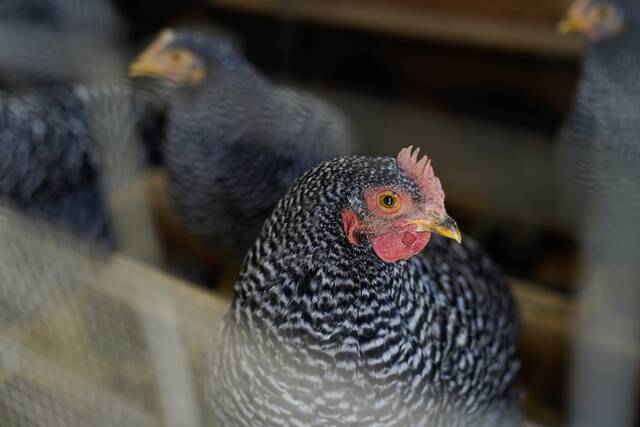A reader and friend from Wexford ribs me about raising chickens. She finds it cute, funny, but also appreciates my philosophy behind it.
She especially appreciates it right now, given the soaring price of eggs. The Avian flu outbreak in the poultry industry has sent the cost of a carton of eggs soaring, double from a year ago. It’s over $4 nationwide, and organic eggs are much higher still (approaching $9 per dozen in some areas). A carton of eggs has surpassed the price of a gallon of gasoline.
And so, I had a good laugh when my friend sent me a Babylon Bee parody about a guy named “Verp Winston” once mocked by his neighbors for raising chickens in his backyard in Minnesota, but who’s now suddenly the town’s most desirable bachelor. “Winston is now the most eligible bachelor for miles,” observes a smitten local woman named Fran Crugg. “All the women want him.”
My friend wondered if this was perhaps my true motivation for raising chickens.
For the record, as a happily married man of 29 years, with eight children and double the number of chickens (plus turkeys), I definitely don’t raise the birds to ingratiate myself with the ladies. Though admittedly, I do pick up the chicks. (Sorry, I couldn’t resist that one!)
But why? What about that philosophy? What prompts a guy in his 50s, who raises kids, teaches students, and writes books and articles to raise chickens?
I can’t claim that I was driven by a prophetic sense of a looming nationwide spike in egg prices one day. However, I can honestly say that my family raises chickens to have a degree of self-sufficiency.
Growing up, I heard stories from my grandparents about surviving the Great Depression. My grandmother, Philomena Gentile, grew up in Russellton. Her Italian immigrant parents, Loreto and Christina, had a bunch of kids on a coal miner’s income. In their tiny yard, they raised food where they could, but they were at the mercy of the market.
By contrast, my grandfather, Joseph Grovanz, grew up on a farm outside of Emporium. His Italian immigrant parents had managed to acquire some land. When I asked him how his family survived the Depression, my grandmother answered for him, barking out enviously, “Don’t ask him! He didn’t suffer at all! Not like we did!”
After my grandfather snapped back, “Aw, shut up!” (this was how they talked in our loud Italian household) he explained that his family had been completely self-sufficient.
My “Papa” proceeded to talk at length about his family’s impressively wide and creative means of self-sufficiency, from growing plants inside and outside, to raising all sorts of animals (chickens and rabbits especially), to hunting, trapping, fishing, picking wild berries and edible plants, and on and on.
I always admired that self-sufficiency and considered it something worth trying to pass on to my own children. For the kids, it’s good to connect them to their family history and see where food really comes from. It doesn’t magically appear in the back of the grocery store.
So, right now, amid Egg Armageddon, we’re getting almost a carton of eggs per day, essentially free (other than the cost of chicken feed). I can’t say that that would have us eating likes kings and queens if economic collapse ever took the nation completely, but at least we would have something.








